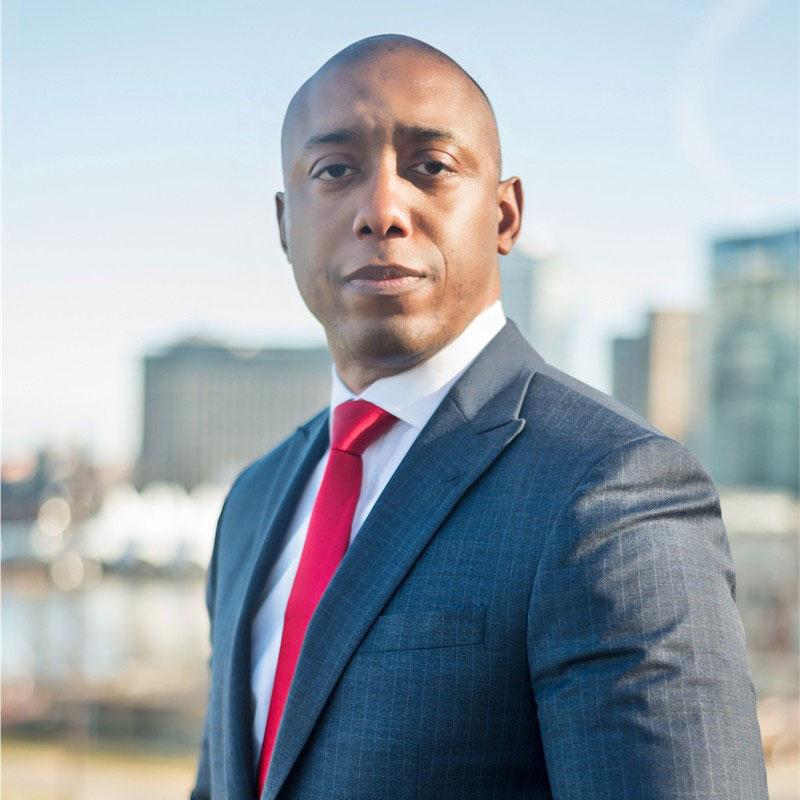Section Heading

Chike Aguh (Chee-Kay Ah-Goo), Principal at Inncuvate
Chike Aguh (Chee-Kay Ah-Goo), Principal at Inncuvate, joined the Lever Fund board last month. Here, he discusses his perspective on our work.
Why did you join the Lever Fund board?
I joined the Lever Fund board because of my own journey in service. The story of my family and me is a very immigrant story to this country. My parents grew up in a rural village in Nigeria, they had Peace Corps volunteers in their classrooms and none of my grandparents went past middle school. What changed life forever for my parents and, by extension for me, was when they got the opportunity to live and study in the United States. I would not be here without American education and opportunity. This country got it right with my family but it does not get it right with enough families. I have always been committed to changing that fact. I joined the Lever Fund because it represents one of the best opportunities we have to give to more families what America gave me right here in the DMV. As a father and husband raising my own family in Prince George's County, I can think of fewer more worthy missions and pursuits.
Section Heading
You were a second-grade teacher at Excellence Boys Charter School in Brooklyn, NY. What did you learn there?
What I took from that experiences besides great relationships with my students and my colleagues were four things:
- Academic achievement at a high level is possible for all students.
- Teaching students discrete pieces of information is necessary but insufficient. We must also help them develop the higher order thinking skills so that they are truly ready for college, career, and citizenship.
- Our education system and the schools in it need a radical reinvention if all students are going to get the education they need to compete on this new global economic stage.
- Particularly for our boys of color, we must remove the barriers that poverty sets in the way of their education for them to be successful and for us to live up to our obligations and potential
During your time running EveryoneOn, what did you discover about how access to technology changes lives?
Technology, from internet access to hardware to digital literacy skills, is going to become the biggest accelerator of the opportunity gap or our greatest potential lever to close it. We know by data that if students are connected to the internet they are more likely to graduate high school and that if their parents are unemployed that the internet can reduce their time out of work by 25%. We also know that having technology available to students along with the skills/judgement on how to use it can open up a whole world of possibilities that too many children in poverty never get. Mark Zuckerberg and Bill Gates became the tech titans they are because they had access to computers and technology as children; we need to provide that opportunity to every child in this region. The great mind that will create the next Facebook or Apple is sitting in Suitland or Gaithersburg or Alexandria, and shame on us if we don't provide them the technology and skills to make the most of their gifts.
What is the most important quality in a nonprofit leader?
I would say point to three qualities:
- Endless Humility that forces one to acknowledge the bounds of your own knowledge and seek out wisdom from others particularly those from the communities where you seek to make a difference.
- Instinct for Experimentation that allows you to strategically and quickly experiment on the best ways to help those in need. We need to move with the speed and innovative spirit of Silicon Valley towards solving the challenge of poverty in the DMV.
- Boldness to Pursue Systemic Solutions that actually solve problems once and for all and that will hopefully remove the need for the non-profit in the future.
What do philanthropists need to understand about fighting poverty in the DMV?
Philanthropists need to understand three things:
- The problem of poverty is multifaceted, rooted in history and fortified by the status quo. There is no silver bullet to solve it, and it will take an interlocking matrix of bold solutions to give every family a shot at the life they deserve.
- Philanthropy must be willing to experiment and place bets on solutions that are new. If existing solutions were all that was required, the problem of poverty would likely already by solved here in the DMV and around the world.
- These solutions must be informed and led by the communities affected, because that is the only way they will last.